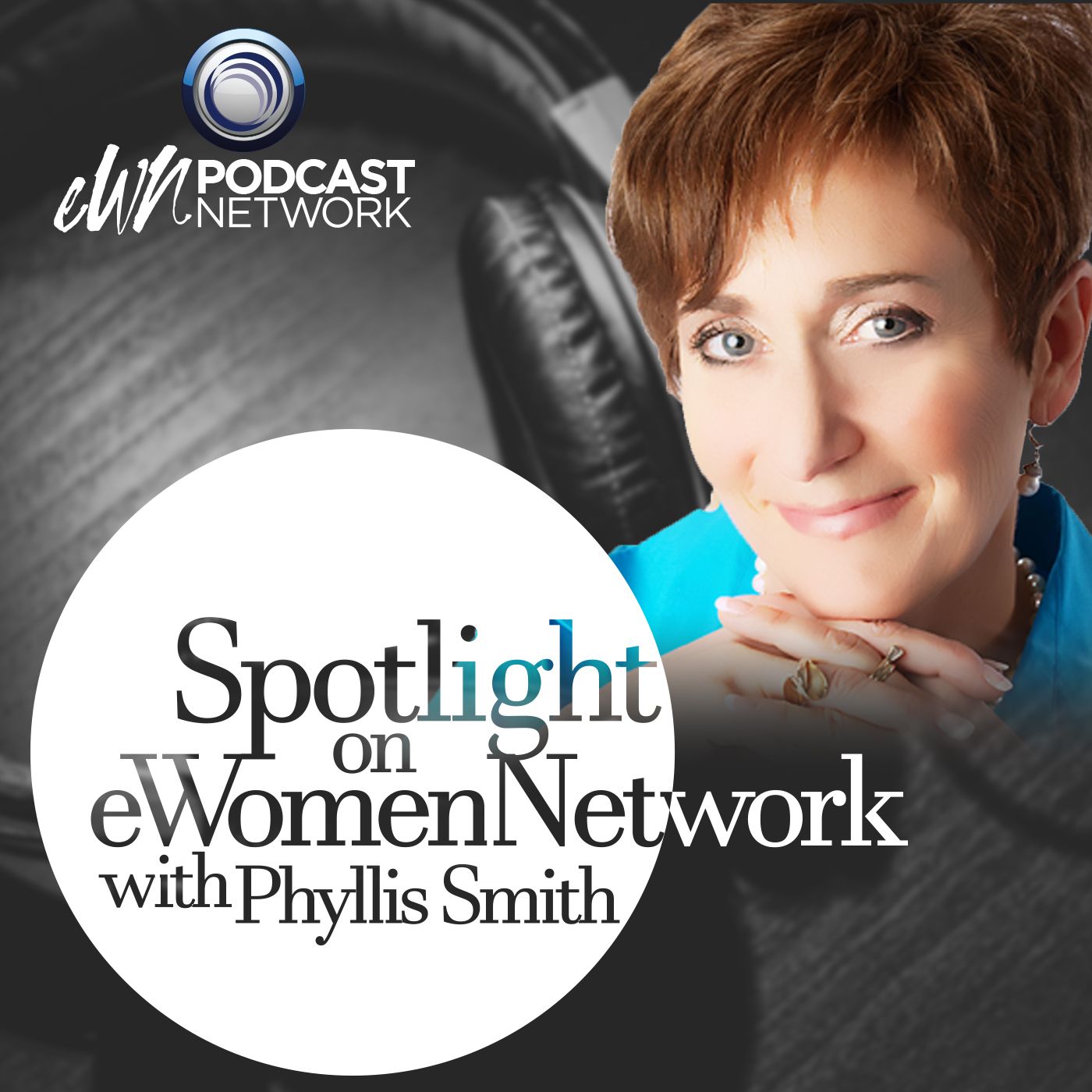On the Spotlight on eWomenNetwork Podcast, Dr. Dorothy's personal story is one from which movies are made. She was orphaned at birth as an illegitimate child of an Irish Catholic woman, re-adopted by her birth-mother’s abusive husband at age 3 and forced to stay outside all day in the backyard of the projects of her Boston home. But despite the horrors of her beginning, Dr. Dorothy’s journey led her to great achievements as a world traveler, licensed therapist and entrepreneur among other things. She shares her story of triumph and what women must do to stop being the nice girl and be a true leader.
Watch the video, read the slightly transcript below or click here to listen to the Spotlight on eWomenNetwork Podcast interview at eWNPodcastNetwork.com.
PHYLLIS SMITH: Hello and welcome to Spotlight on eWomenNetwork. I’m Phyllis Smith. We often hear stories about leaders who have overcome obstacles. Oprah Winfrey comes to mind. She was repeatedly molested as a child and gave birth at the age of 14 to a little boy who ended up dying shortly after that. Helen Keller, who was deaf and blind by the time she was 2 years old and ended up becoming the first blind and deaf person who achieved a bachelor’s degree - then went on to become an activist for women’s rights, disability, and more.
My guest today is no stranger to overcoming seemingly impossible odds. Her name is Dr. Dorothy Martin-Nevel, also known as Dr. Dorothy. She has a story of survival, I’m not kidding, unlike anything that you’ve ever heard. She was abused, put into an orphanage only to be readopted by her birth-mother, and there’s so much more we’re going to learn about her. Despite these unthinkable circumstances Dr. Dorothy became a leader, achieved tremendous success and now helps others despite their circumstances.
Dr. Dorothy is a renowned speaker, author, featured on the Oprah Winfrey Network, TED Talks, New York Times, and more. Please welcome Dr. Dorothy!
DR. DOROTHY: Hello.
PHYLLIS SMITH: Thank you for joining us!
DR. DOROTHY: You’re so welcome! This is a joy! It’s good to see you again.
PHYLLIS SMITH: You too! We’ve spoken and done this before, but you’re somebody I want to have again and again because you have such a compelling and inspiring story.
Let’s start from the beginning. You started your life as an illegitimate child of an alcoholic mother who gave you up to an orphanage, readopted by her, and lived in terrible poverty and abuse. Can you walk us through that, so our listeners can hear what an incredible story you’ve overcome?
DR. DOROTHY: Sure, quickly to summarize 30 / 40 years or so. I was a product of an affair and good Irish Catholic girls don’t have affairs. Therefore, they don’t have illegitimate children. The orphanage was the place they thought they could put me to hide me away and let me be raised there.
A few years later my mother married somebody and got pregnant again. He found out that I existed and that I was in an orphanage. He didn’t believe that Irish girls belonged in orphanages and insisted on adopting me against my mother’s desires.
My grandmother lived with them as well, and she and my mother did not want me adopted. It was under great protest that he did this, and when he brought me back to the home in the housing projects in South Boston they would not allow me in the door. He got a playpen, and every morning would put me in a sun suit or a snow suit depending on the season. He’d get me up at 5:30 and get me breakfast, because my grandmother got up at 6, and then he’d put me in my sun suit or snow suit, put me in the playpen and put me out by the front stoop. All the housing projects had front stoops where all the activity of the day starts. He would leave me there until 9:30 at night when everybody went to bed. Then he’d come out and get me, bring me in, get me dinner and put me to bed. This went on for about 3 years until my grandmother fell and broke her hip. She was placed in a nursing home and at that point against my mother’s protest, my father confronted my mother and brought me into the house.
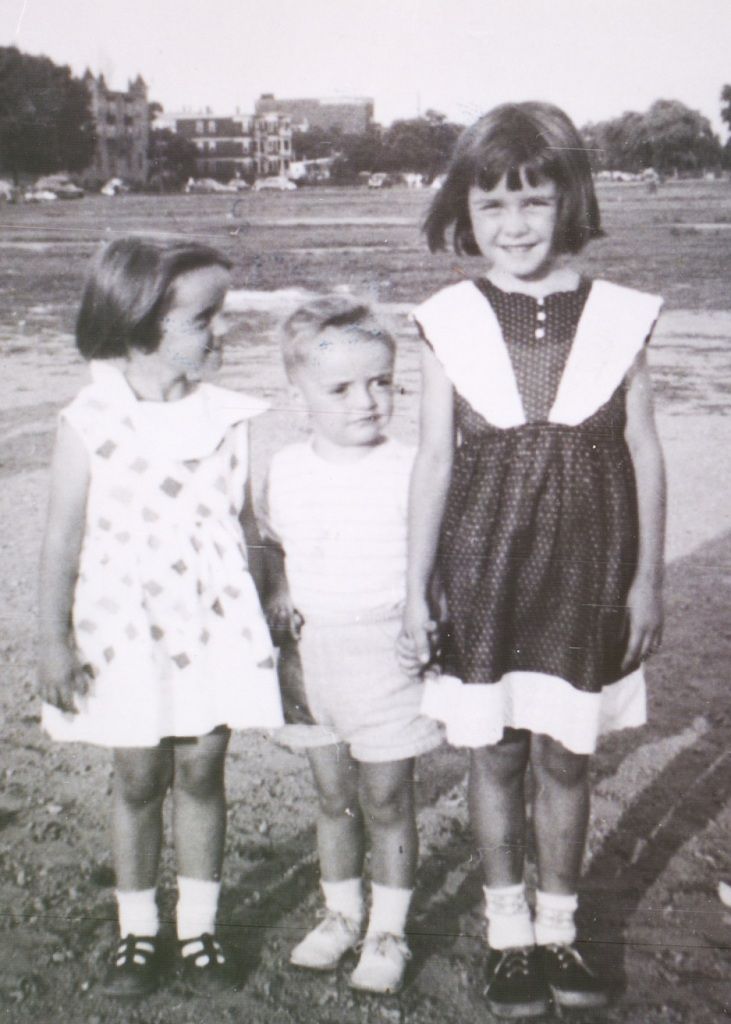
Saving My Family at Age 6
At that point I realized I had numerous brothers and sisters, half brothers and sisters, but they’re family. There’s no such thing in my world as steps. We’re all family. I realized my dad was a violent alcoholic. My job at 6 became to save them, keep them alive, keep all my brothers, sisters and mother alive and sane. Because both of those were threats. We were whipped or beaten. He was a fighter, and we would be beaten up or whipped every day. If you didn’t do anything wrong he would say it, so you remember who the boss is, who’s in charge and to make sure you don’t do anything tomorrow. That became my life until I was 17 – keeping them alive.
I was hospitalized once or twice for ulcers, because the stress was huge - but that was my life. When you live it, you don’t think it’s extraordinary. It’s just the world you live in.
PHYLLIS SMITH: It becomes about survival.
DR. DOROTHY: It really does and when you live in the housing projects so much of it is survival. You’re not the only family out there. I mean everything is to degrees, but you’re not the only family out there that’s surviving in the projects. Everybody’s barely making it. It was a community of people.
My job at 6 became to save them, keep them alive, keep all my brothers, sisters and mother alive and sane.
My Big Escape
PHYLLIS SMITH: That happened until you were 17. How did you escape that situation?
DR. DOROTHY: In my world there’s about 50 of us in my freshman class and very few made it to graduation. If you graduated in May you married in June and you were a success story, because you were educated. In that world you were educated. You had a high school diploma and you got married in June. I was engaged to Michael Daniel Flaherty and we were going to be married, because you marry your own kind and Michael Daniel Flaherty was one of my own kind. He was wonderful. A great guy. I very much loved him, but I also wanted a bigger picture. I wanted out of South Boston. I wanted out of the projects. I wanted a bigger place on this planet. I didn’t know what I wanted to do, but I wanted it to be larger. I tried to go to college, but my dad didn’t believe in educating girls, because he had many boys to educate and money was short. He had to choose and chose to educate the boys.
I decided I would get myself a job and go to nursing school. I applied to nursing school in Dorchester. I discovered that I went to an unaccredited inner-city school. No nurses school in the United States could accept me because I had an unaccredited inner-city high school degree - even though I was a great student. I was blessed, and academics has always been easy for me. I couldn’t go to nursing school.
My mom says just become a waitress until you get pregnant and then stay home and raise your children. I wanted many children and I wanted to be married, but I also wanted bigger.
I thought the only way out was to break up with Michael and become a Sister of Mercy. I applied to the Sisters of Mercy because they do social work, and I thought I would love to do social work. Then I realized I could not become a Sister of Mercy, because the Catholic Church doesn’t allow illegitimate children in the convent. That road was closed as well.
One of my teachers said, “What are you going to do?” And I said, “I guess I’m going to marry Michael. I can’t get out and I’ve tried everything I know.” She laughed because I was a precocious child that I even tried Sisters of Mercy and thought that was quite funny, but I thought well at least they can’t send me to detention. I had spent a lot of years at detention in school. Innocent things, but a lot of time in detention.
PHYLLIS SMITH: You were in detention at home all day long. It’s shocking to me and hard for me to imagine what that must’ve been like for 3 years to be left outside no matter what the weather.
DR. DOROTHY: To this day I hate the cold.
PHYLLIS SMITH: Do you?
DR. DOROTHY: My mother would say your father would come home and you’d have your hat and gloves off you loved the cold so much. You think a 2-year-old, 3-year-old, they take things off, they are just outdoors - they don’t know the difference. She said your ears would be beat red, your hands would be beat red, and your daddy always put your hat and gloves on before he went in for dinner. They would go in and have dinner and then come out and get me at 9:30.
To this day I hate the cold. I truly do.
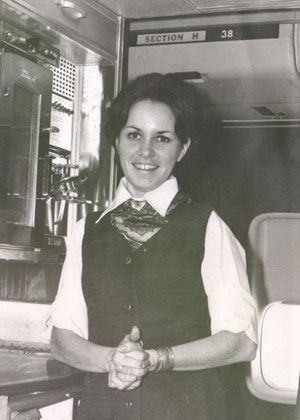
My First Step in Becoming a Leader
PHYLLIS SMITH: Let me ask you. You became an airline stewardess, a psychotherapist, and you were in private practice. Eventually you made it and big time!
DR. DOROTHY: Yeah.
PHYLLIS SMITH: Tell us about the integrative health program you pioneered? We don’t have time to go through the whole story of your life, but obviously that took great leadership. Tell us about that as well as how your experience shaped your ability to be a leader.
DR. DOROTHY: It became amazing. My way out was a Parish Priest and one of my teachers found a community in Quebec that allowed me to enter religious life in Quebec. I moved to Quebec and became a Sister Servant to the Immaculate Heart of Mary Good Shepherd Sister. They sent me to college and that lesson taught me that when you truly want something, and you really work for it anything is possible. That transformed how I saw myself and life itself. From that having a college degree and becoming a social worker. If you want it, go for it! Eventually, I left religious life. I realized it wasn’t for me.
I wanted to see the world and the only way I could think of doing it is becoming an international airline stewardess. So, I moved to Manhattan, became an international airline stewardess flying out of Kennedy. The message was becoming clear to me at this point in my life that my life was in my hands. I didn’t have parents. I didn’t have Mother Superior. My life was in my hands, and I realized I have the ability. I have that power to really become the leader of my own life, and what do I want to do with my life? Nobody is responsible for it, nobody is in charge of it but myself. Whether I make good or bad choices they’re my choices. That really began to shift how I saw the world and my place in it.
My life was in my hands. I didn’t have parents. I didn’t have Mother Superior. My life was in my hands, and I realized I have the ability.
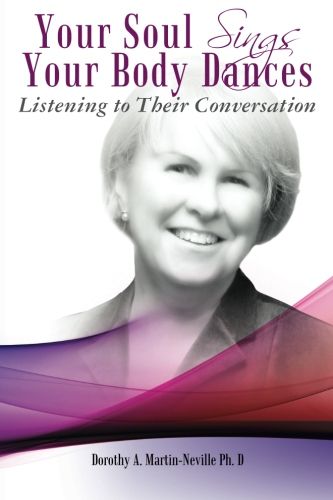
Your Dreams are in Your Hands
Eventually I married and was married for 15 years. Then divorced with 2 little ones in kindergarten and the 4th grade and decided I needed to support my children. I went back to school and got my masters degree as a therapist and opened a private practice because my children were not going to be raised in the projects. Again, what are your decisions, what are your choices, and what do want to do with it? They’re not going to be raised in the projects. That’s not the life my children will ever know. I opened my practice and saw 42 patients a week.
It was amazing at our commencement. The dean had said to us, “Never have more than 20 patients a week, because there are so many therapists here in the area you’ll never find any more clients than that.” But I ended up with 42 patients a week I saw with a 6-month waiting list after 3 months. The 6-month waiting list might be afternoon and morning classes and realized no matter what people tell you if you truly want something – how are you going to make it happen? This is absolutely your choice. Everybody who has never followed a dream is going to tell you dreams are impossible. Those who have followed their dreams, it doesn’t matter what the dreams were. They know dreams can take place. So, go for it. I truly believe that.
Those who have followed their dreams, it doesn’t matter what the dreams were. They know dreams can take place. So, go for it.
You are the Leader of Your Own Life
I was in practice for about 4-years and became bored and somebody said to me, “You should study acupressure.” I thought that’s odd, I don’t even know what it is. But I studied it and went on. Eventually, I became certified in 9 modalities in integrative health care and my reputation shifted, and I started seeing clients who wanted integrated health care.
They said to me, “Teach us what you know.” Well you don’t know what you know you just practice what you know. When you integrate knowledge, when knowledge stays in your head it’s just knowledge. When you integrate it, it becomes apart of who you are. It’s how you walk through the planet, and so people said, “tell us what you know.” I didn’t know what it was, but I eventually put together a 6-week program, which became a 2-year program, which became a 4-year program and my little courses in the evening ended up becoming a program approved by the department of higher education here in the state of Connecticut.
Students were flying in from around the country, Canada and the Caribbean to study with me and I decided that I had gone to Barbara Brennan school, which was a 4-year program in energy medicine in Long Island, and Barbara wanted nothing to do with Allopathic medicine with so called traditional medicines. I don’t believe in making enemies. So, I think we need to bring these strengths and all realities together.
I made it so that my juniors and seniors were required to do medical internships. They could do it in whatever state they lived in and my school became affiliated with 50 hospitals across the country. Then it became approved by the department of higher education here in Connecticut and we were the only school, and still we’re the only school in the United States, although I closed my school about 7-years ago. I had it for 19 years. We were the only school in the country that was affiliated with integrated health care and hospitals where we would go in and begin integrated heath departments doing energy medicine, doing acupressure, doing different types of work to support students in their healings.
That then supported me in going forward in getting a PHD in psychology, but my dissertation was on the psychological and spiritual causes of physical diseases and disorders. Again, all this was back to your health is in your hands. You are the leader of your own life. You are the one who is in charge. You have the power over your life and how you are going to live it. It became a message that was so clear in my world that after 25-years of private practice, I ended up working with executive women leaders - supporting them, recognizing the way they self-sabotage and the way they get in their own way.
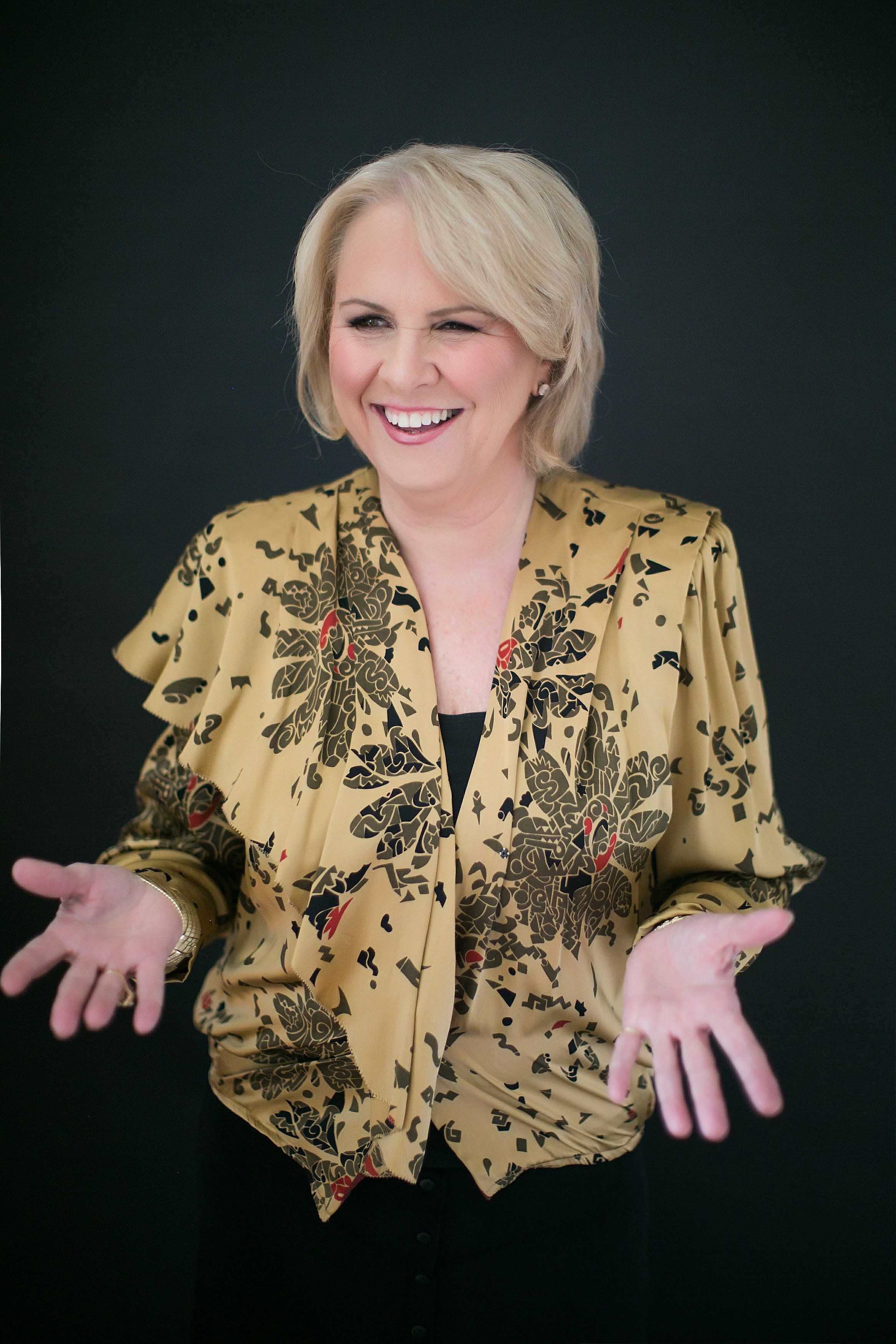
Take Responsibility for Your Vision
PHYLLIS SMITH: It’s quite amazing that women in particular self-sabotage. We’re going to take a short break and talk more about this, but it’s amazingly gender specific.
DR. DOROTHY: We all do it, but women do it in their own unique way.
PHYLLIS SMITH: Yeah, and it’s interesting that someone l like you with what you have been through it would be so easy to spiral. Right? To become the victim and then hold yourself back because of what you have been through and use that as an excuse. You flipped it around instead and became wildly successful in areas that you’re making a difference in people lives. Changing people, helping others, paying it forward, so to speak, as you have heard before.
Let us take a short break and when we come back we’re going to get into what it takes to be a leader, how to overcome those obstacles and with seemingly impossible odds. Take a moment and we’ll be right back.
We were just talking about how women tend to self-sabotage. Tell me about that Dr. Dorothy and why is that so gender specific? Why do we do that?
DR. DOROTHY: Men and women both self-sabotage but women have created their own unique ways in doing it. It’s amazing to see. I’ve worked with very high-end women clients who have a good quarter and they get a half million-dollar bonus. I have worked with high end women and women who are just starting out. What I find consistently is that women have this sense of what leadership looks like and leadership isn’t who they are it is a role they believe they are supposed to play.
Leadership is Not A Role We Play
PHYLLIS SMITH: Very interesting, thinking in the terms of that mind set. We’re playing a role as opposed to - we’re a leader.
DR. DOROTHY: It’s who I am. I don’t follow well. Consequently, I’ve learned to take responsibility for my life. My vision is this - Whether it’s my company, in the C-suite, the CEO, the head of the company or the president of the company - whatever your vision is, our leadership has nothing to do with the role we play. Janitors can be effective leaders. A leader is somebody who takes responsibility, and to walk in front of the crowd because a leader leads. A leader doesn’t manage - a manager manages the chaos that manages a department. A leader doesn’t manage. A leader is out front. They are the one in a company creating the culture of the company. They are the one with the vision, with the mission statement that is taking this company to that next place.
If you don’t have that ability but you still want to open a company of your own, it’s best to find somebody who you can share your vision with. Somebody who has the personality and they can become the visionary leader, but you’re the one feeding them and supporting them. If your personality isn’t such that you can get on stage and make it happen, then you must own the fact that it is my company. I’m in charge and it’s my vision. I may not be comfortable expressing it, but it’s my company and I’m leading the game. When we own that and truly recognize our leadership is not a role we play but who we are then we can begin to look at what ways do we give our power away? What ways do we give our leadership away?
My experience with women is no matter how high or low their position, there is a feeling as if they must compete against, and that, “I must compete against” puts me in a back position. When I must compete, it means I’m not as powerful as I want to be and somebody else can impede my power. Nobody can! Nobody can get in your way. We can have competition in business, but nobody can take your power away.
We can have competition in business, but nobody can take your power away.
We are All Born Leaders
PHYLLIS SMITH: Let me ask you this. We hear the phrase, “oh, he or she is a born leader”. Do you think that people are born leaders? That their DNA sets them up for that, or is this something we can learn?
DR. DOROTHY: I believe everyone of us is a born leader. I think the difference is, especially as women, some of us own our leadership, some of us sit on it, because we’re terrified of being too much, some of us have never been taught how to lead and we either become aggressive and controlling which is a defensive play. Very powerful energy with training could make them effective leaders. When we are aggressive and seeking control, we’re in fear, but we cannot lead when we’re in fear. I think we all are born with the ability to be leaders. Not all of us choose to develop it. Some of us prefer to be dependent and have others take care of us.
PHYLLIS SMITH: Do you think it’s generational? Let me give you an example: Both of my parents where happy people. They had an “Ozzy and Harriet” marriage.They’re still married after 64 years or so. My mom was a teacher, but my dad really didn’t want her to go get her master’s degree. I think maybe in some way he was threatened by that. I remember, I was going to play tennis against a guy I had a crush on and my dad told me not to win. I have a tremendous drive, but it’s real interesting that I could self-sabotage. Are you seeing similar circumstances with women today that are millennials or even our 30- somethings that they are seeing themselves that way, or is it just kind of a female thing?
DR. DOROTHY: I see it across the board. I see 30-something single mothers who are overwhelmed. I know it’s hard because I was a single mother. It’s not the easiest job in the world, but I see them hoping to find that man who can come in and help them raise the kids or find a situation where that’s going to make it all better. I see them hoping rather than, “What do you want to do to make this all better and work more easily for you and your children?”
Stop Saying You're Sorry!
I also see that regardless of age, women, if you notice, spend a whole lot of time saying, “I’m sorry.” “I’m sorry for this.” “I’m sorry to interrupt, but do you know where the meeting is being held?” What if we simply said, “I didn’t hear what they had to say. When is that next meeting if you don’t mind?” I’m sorry makes you small. Not that we should never feel apologetic, but there are so many ways to deal with this. When we are continuously apologizing as a way of life, men see us as weak. What we’re really saying is, "I’m sorry I exist. I’m sorry I take up space, or I’m sorry I get in your way." To say to them, “I was 5 minutes late, something came up. I truly want to apologize for that. Now let’s begin.” This sounds very different than saying, “I’m so sorry I was late. I really didn’t mean to be, but I couldn’t help it. This is what happened.” All of a sudden I’m explaining and justifying, and women do that on a regular basis. They’re giving their power away through the apology. I think it’s something we really need to look at because standing in our power and just saying, "I made a mistake. How can I make up for that, or what can I do to help rectify this?” It's really speaking as a powerful woman to another powerful woman - not a child.
When we are continuously apologizing as a way of life, men see us as weak. What we’re really saying is, "I’m sorry I exist. I’m sorry I take up space or I’m sorry I get in your way."
PHYLLIS SMITH: Here’s another interesting thing - eWomenNetwork, is the number 1 resource for women entrepreneurs. Our whole membership is made up of women entrepreneurs, but it’s so interesting. Sandra brings this up all the time how only 2% of women entrepreneurs make it to a million, and of course that’s our mission, you know, one million women each achieving one million dollars in annual revenue. But there’s something that’s holding them back from that bigness. It sounds like what you’re saying is that - you know, it always hurts me that you said that we just kind of don’t want to take up space. I kind of feel that in my body - that feeling of “eww, I’m taking up space and I’m so sorry.” Even if we come across like dynamic people there is still a lack of awareness underneath it all that what we are doing is that subtle thing that is preventing us from moving forward.
DR. DOROTHY: We’re stuck in a training that says we should be nice. We cannot be nice and real at the same time, and if we are going to make a million dollars we have to be real. We have to be authentic. Authentic real leaders have authentic businesses that thrive. Nice girls don’t have access to their own personal power. We really need to look at that 98% and see how many are caught up in being nice, and not for a moment being aggressive, because I’m as appalled at being aggressive as I am by nice. Powerful is never aggressive, but powerful is never nice. Powerful is real, it feels terrific, and if I’m going to be as real, authentic, and as powerful with you, it calls you to be authentic, real, and powerful with me.
We cannot be nice and real at the same time and if we are going to make a million dollars we have to be real.
Power is NOT Control
PHYLLIS SMITH: You say that power is diametrically opposed to control. We must know the difference to be a true leader. Would you explain the difference?
DR. DOROTHY: When I am powerful – I AM. It truly is a statement that says, I am. You may disagree with me on something, that’s great. That is your opinion, you can disagree. I have nothing to prove. I love warm weather. You know cold weather is much better for you - just to pick some ludicrous example. Great for you. I hope you live up north and have a ball in Alaska. I’ll be going to the Caribbean. I do not have to prove to you why one is better than the other, and I can let that go without going into any fear, or any defense that says I’m less than because you don’t agree with me. If I want control, my point is to prove you wrong. If I want control, my point is to prove I am as powerful as you if not more, and I will make you see that. So my energy isn’t going into moving forward. My energy is going into showing you and anybody else like you that you are not as smart, as powerful or as capable as I am. All my energy is in the battle and it’s not moving forward.
PHYLLIS SMITH: It’s the idea of the power to – the power to be a leader, the power to do something as opposed to the power over.
DR. DOROTHY: Right. Power over keeps us in defense, and if we are in defense, if we are in aggression, and aggression is always a defensive play. Aggression is always against something. All the energy I put into against something is the energy I cannot put in to creating something.
So, to lead, to build, you know, first you want to be authentic, be yourself. I think when we combine authenticity with love, a little bit of courage and little bit of action I think that’s when life gets – that’s how we find our sweet spot
Being a Leader is a State of Being, Not a Job Title
PHYLLIS SMITH: To start becoming a leader today, the leader we are born to be you say it starts from the minute you open your eyes in the morning.
DR. DOROTHY: It’s a state of being. It’s not something we do. It’s a state of being. If somebody speaks to you at 6 in the morning, you may say give me a moment to get my equilibrium, I just woke up, but once you have it you’re in place. You know at this point in time you have nothing you ever need to react to but only things you respond to or initiate. When we are empowered it is a way of looking at life. I initiate, or I respond. I never, ever react. It’s dramatically different.
PHYLLIS SMITH: Yeah. You say when you get out of the bed every morning you have to say to yourself or know, not just say it, know you are already powerful, you are already a leader and you already have a purpose.
DR. DOROTHY: When I wake up in the morning I spend anywhere from a minute to 20 minutes, depending on my day, in meditation while I’m still in bed. In that time frame I become centered back into who I am. The woman I’ve become today. Who am I today? Breathing that in and thanking God for all the opportunities I have been provided and the strength to make the choices I did. By the time I put my feet on the floor I’m ready to start the day with all of me in it.
When we are empowered it is a way of looking at life. I initiate, or I respond. I never, ever react.
The Strength Not to Be Nice
PHYLLIS SMITH: It becomes a state of being and not a job title. One final thought, and I could go on for the whole day, maybe a week with you going through all this. I’m so blessed and grateful that you’re a part of “us” eWomenNetwork that you’re out there impacting and changing others’ lives and helping them really own their power and leadership.
The other thing I think is also really something I want our listeners to take away, you say, effective leaders create leaders daily and only hire people who are leaders. Someone else might say well you can’t have a bunch of A’s, but you have to some A’s and B’s. A B level and a A level and if you have to many leaders then to many cooks spoil the pot.
DR. DOROTHY: If you have too many people in defense you will never get anything accomplished. If you have 2 leaders who are leading, they are responding and initiating and not reacting.
I want my VA to have the strength to not be nice. If I send something to her and she doesn’t want to hurt my feelings, so she sends it through. I’d rather have a VA who’s powerful enough and says to me, “Dorothy, before you send this out I think it could be rephrased better.” Terrific! Tell me what you think. Let me know what you think is better? She may have a far better idea than I came up with. Fantastic! I want her to have the leadership skills that say this is what I do as a VA, and I do it well.
Effective leaders create leaders daily and only hire people who are leaders.
PHYLLIS SMITH: What you’re saying to me is a true leader knows her self-worth. She really knows it. She doesn’t just speak it, like I’m worthy and gives herself affirmations. Because if you know what your gifts are then you also can allow others to provide their gift to you. Like your VA. Like your receptionist. They can see your blind spot and you’re open to it.
DR. DOROTHY: You want it. You want them to be powerful because this is my vision. This is my vision for my life because it’s my company. No matter how good she is at whatever her role, it’s my vision. What do I need to be frightened of? I want my friends to say, “Hey, do you think you’re going off base on this one? You’re getting caught by the shiny object over here.” Ah, that was so easy, how did I do that? Thanks! Back on purpose. Back to go. Friends who can sit and have a glass of wine and giggle or cry with, but friends who simultaneously know this is who I am and that’s who they are because if they’re going to be my friend. They need to have that strength to be partners with me in life.
The 98% my heart goes out to them. I love working with women who have already made it. My clients are women who have been successful. Who to know how they’re getting in their own way. Plus, if they’re going to afford me they must be successful. So, that they know where they want to go, what they want that to look like, and most importantly who do they want to become? Because who you want to become is more important than what you want to do because what we do changes.
PHYLLIS SMITH: Don’t you think what we want to become, I mean, we could start out in a business and then 10 or 20 years later, the becoming could be something a little different. It could be, well I’ve done this, like you had various careers in your life. Right? Then I believe that becoming is evolving all the time. When we’re 80 we’re becoming something else at that stage in our life.
DR. DOROTHY: God willing. If we don’t and what we do remains the same, we have become stagnant. I was a social worker empowering people. I then became a therapist empowering people. I then became a healer while I also had my therapy practice and I also had my school. I had 63 positions on staff, but I had my school. But in both situations, I was empowering people to own their lives and become more of who they are.
Now I work with women helping them become more of who they are as effective leaders. Don’t settle for 1 million, go for 2 million, or go for 3 million. Don’t become work obsessed, but become growth obsessed. Enjoy yourself always taking time to stop growing and take a week to play. We can’t be in process all the time. We need time off to play and oftentimes what happens when you take that week to play you start integrating all this stuff from the past. It catches up with you and the women who walks out of holiday is more of who she is than the women who walked into holiday. Because your growth caught up with you and that supported your transformation. We need to stop growing and processing, so we can just be and catch up.
My experience consistently is that the women I work with is that they’re due shifts and changes because as they grow what they were doing doesn’t feed them anymore. If they stay with the same company, they expand it. If they don’t stay with the same company it’s not something dramatically different because every skill I’ve developed and all the jobs I’ve held has created a me that I’m bringing to my next job. All of those helped this transformation. It isn’t that I’m dramatically different or doing something different, I’m more and it’s based on my life experiences from my past.
PHYLLIS SMITH: Yes. Absolutely and you are right on. I feel it in myself when you talk about those things. I feel I’ve had so many great jobs, interesting things that I’ve done, and I’m one of those people that just go after it. But there still is something, a little voice occasionally in my head that said not so fast.
First before we end; how can people reach you what’s the best way to reach out to you?
DR. DOROTHY: They can give me a call 860-543-5629. They can drop me an email at Dorothy@AskDrDorothy.com. That’s A-S-K-D-R Dorothy.com. So, an email or a phone call. I’m here and I love what I do. The more women I can work with the better. I love to support that many and see them take off and fly. Become who you truly are not who somebody told you you’re meant to be.
PHYLLIS SMITH: On that note I do want to say that you say we are not our history, but I must believe that because of your history and having had no control and so unempowered and that you now spend your life empowering others. So, in a good way you’ve turned around that horrible nightmare into something that is a beautiful thing and a gift to us all. So, thank you so much Dr. Dorothy!
DR. DOROTHY: Thank you so much! Consider telling a great story that provides personality. Writing a story with personality for potential clients will asist with making a relationship connection. This shows up in small quirks like word choices or phrases. Write from your point of view, not from someone else's experience.
Transcription services provided by our eWomenNetwork member, Rhonda’s Virtual Office.
Want to improve your processes, save time, and make more money?
Contact Rhonda’s Virtual Office. They do it all!



